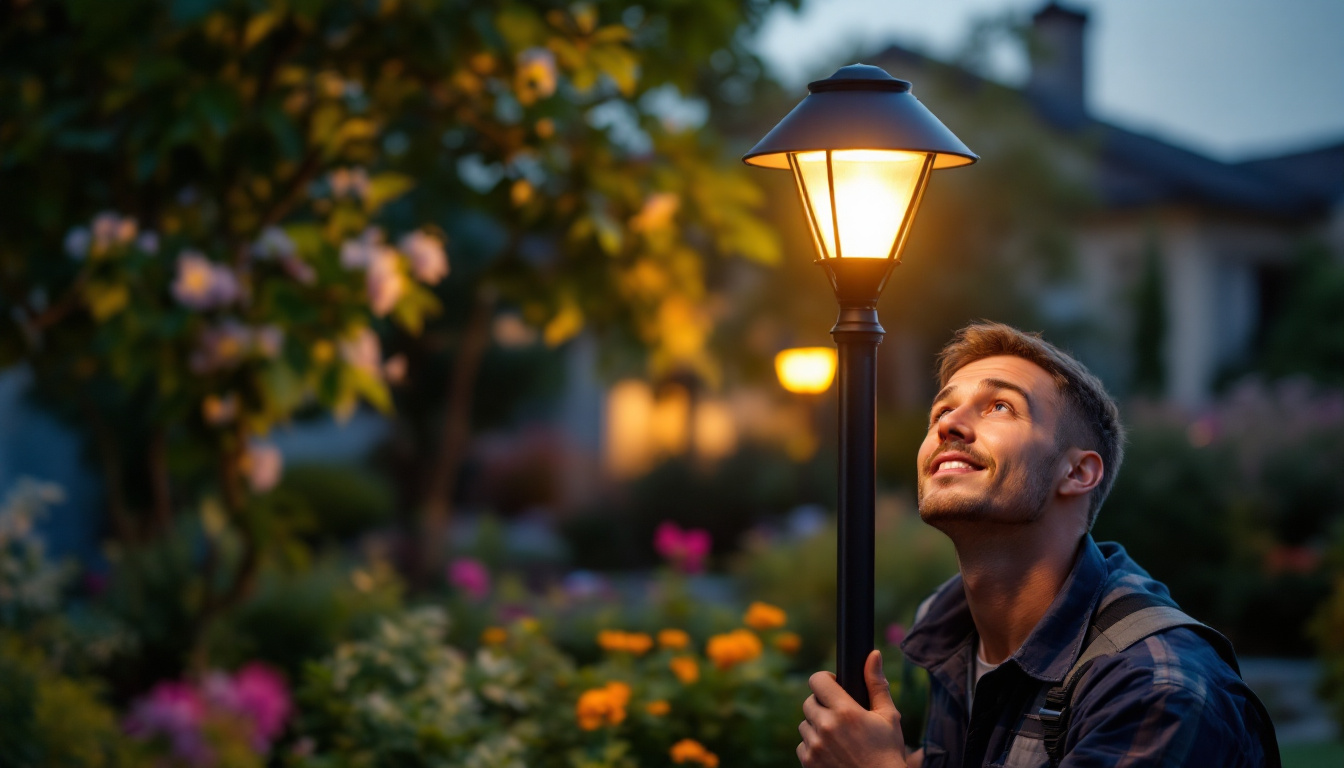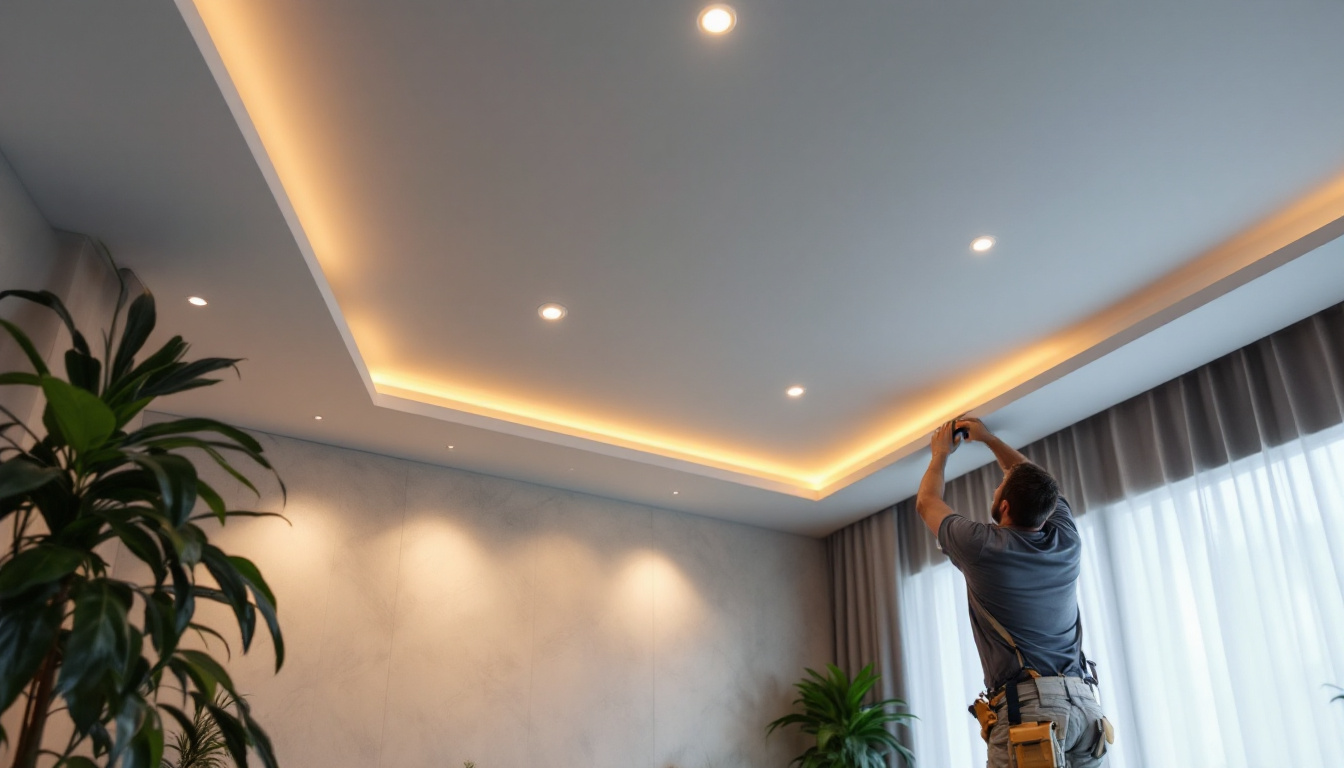
In the ever-evolving world of outdoor lighting, solar lamp posts have emerged as a popular choice for both residential and commercial applications. Their energy efficiency, ease of installation, and minimal maintenance make them an attractive option for lighting contractors. However, to truly master the art of installing and maintaining solar lamp posts, contractors need to be equipped with the right knowledge and skills. This article aims to provide valuable insights and tips for lighting contractors looking to excel in this niche.
Before diving into installation techniques and best practices, it is crucial for lighting contractors to have a solid understanding of solar technology. Solar lamp posts harness energy from the sun, converting it into electricity to power LED lights. This process involves several components, including solar panels, batteries, and LED fixtures.
Solar panels are the heart of solar lamp posts. They capture sunlight and convert it into electrical energy. The efficiency of these panels can significantly impact the performance of the lamp post. Contractors should consider the quality and wattage of the solar panels they choose, as higher-quality panels will generally provide better energy conversion rates. Additionally, the orientation and tilt of the solar panels can greatly influence their effectiveness. Proper positioning can maximize sun exposure throughout the day, which is particularly important in areas with varying sunlight conditions.
The battery stores the energy generated by the solar panels, ensuring that the lamp post remains functional even during cloudy days or at night. When selecting batteries, contractors should look for options that offer a good balance between capacity and lifespan. Lithium-ion batteries are increasingly popular due to their longevity and efficiency. Moreover, understanding the charging cycles and discharge rates of these batteries is essential for optimizing performance. Some advanced systems even incorporate smart technology that monitors battery health and adjusts charging patterns to extend battery life, providing a more reliable and sustainable lighting solution.
LED fixtures are known for their energy efficiency and long lifespan. When choosing LED lights for solar lamp posts, contractors should consider the lumen output, color temperature, and overall design. A well-chosen LED fixture can enhance the aesthetic appeal of the lamp post while providing adequate illumination. Furthermore, the integration of smart lighting technology, such as motion sensors and dimming capabilities, can significantly enhance the functionality of solar lamp posts. These features not only improve energy efficiency by reducing power consumption when full brightness is unnecessary but also contribute to safety and security in outdoor spaces by ensuring that lights are activated when needed.
Proper installation is critical for ensuring the long-term performance of solar lamp posts. Following best practices not only enhances functionality but also minimizes potential issues down the line.
Before installation, conducting a thorough site assessment is essential. This involves evaluating the location for sunlight exposure, potential obstructions, and the overall landscape. Ideally, solar lamp posts should be placed in areas that receive direct sunlight for most of the day to maximize energy absorption. Factors such as nearby trees, buildings, or other structures can cast shadows that may significantly reduce the efficiency of the solar panels. Additionally, it’s important to consider seasonal changes in sunlight exposure, as the angle of the sun shifts throughout the year, potentially affecting the amount of light received.
The placement and height of the lamp post can significantly affect its performance. Generally, solar lamp posts should be installed at a height of around 7 to 10 feet to ensure optimal light distribution. Additionally, spacing between lamp posts should be carefully considered to avoid dark spots and ensure even illumination. In areas with wider pathways or larger outdoor spaces, increasing the distance between posts may be necessary to maintain adequate lighting levels. Furthermore, it’s beneficial to take into account the intended use of the area; for example, if the space is frequently used for gatherings or events, brighter and more strategically placed lighting can enhance safety and ambiance.
A stable base is crucial for the longevity of solar lamp posts. Depending on the design, contractors may need to anchor the post in concrete or use ground stakes. Ensuring that the base is secure will help prevent tipping and damage during harsh weather conditions. It’s also advisable to check local regulations and guidelines regarding installation, as some areas may have specific requirements for the depth of the foundation or the materials used. Additionally, regular maintenance checks on the base can help identify any signs of wear or instability, allowing for timely repairs and ensuring the lamp posts remain safe and functional throughout their lifespan.
While solar lamp posts require minimal maintenance compared to traditional lighting solutions, regular upkeep is still necessary to ensure optimal performance. Contractors should educate their clients about maintenance practices to prolong the life of the installation.
Dust, dirt, and debris can accumulate on solar panels, reducing their efficiency. Regular cleaning is essential, especially in areas with heavy dust or pollen. Contractors should recommend that clients clean the panels at least twice a year, using a soft cloth or sponge and mild soap to avoid scratching the surface.
Monitoring battery health is vital for the consistent performance of solar lamp posts. Over time, batteries may degrade and lose their capacity. Contractors should advise clients to check the batteries annually and replace them when necessary. Using high-quality batteries can also reduce the frequency of replacements.
LED fixtures are designed to last, but they can still experience issues over time. Regular inspections can help identify any flickering lights or complete failures. Contractors should encourage clients to report any issues promptly so that repairs or replacements can be made swiftly.
Lighting contractors should be aware of local regulations and incentives related to solar installations. Many regions offer tax credits, rebates, or other financial incentives for solar energy projects. Understanding these can not only benefit the contractor but also provide added value to clients.
Before beginning any installation, it is important to research local building codes and regulations. Some areas may have specific requirements regarding the height, placement, and design of solar lamp posts. Ensuring compliance with these codes can prevent potential legal issues and fines.
Many states and municipalities offer incentives for solar energy installations, which can significantly reduce costs for clients. Contractors should stay informed about available programs and be prepared to assist clients in navigating the application process. This not only enhances the contractor’s reputation but also encourages more clients to consider solar options.
While functionality is paramount, the aesthetic appeal of solar lamp posts should not be overlooked. Contractors have the opportunity to enhance the visual aspect of their installations, which can be a selling point for clients.
Solar lamp posts come in various designs, from traditional to modern styles. Contractors should familiarize themselves with the different options available and be able to recommend designs that complement the architecture of the surrounding area. A well-chosen design can enhance curb appeal and increase property value.
The color temperature of LED lights can influence the ambiance of an outdoor space. Warmer temperatures (around 2700K to 3000K) create a cozy atmosphere, while cooler temperatures (5000K and above) provide a more modern and vibrant feel. Contractors should discuss these options with clients to determine the best fit for their needs.
As smart home technology continues to grow in popularity, integrating smart features into solar lamp posts can be a unique selling point. Options such as motion sensors, remote control, and programmable timers can enhance convenience and energy efficiency. Contractors should explore these technologies and be prepared to offer them as part of their services.
Despite the many advantages of solar lamp posts, contractors may encounter challenges during installation and maintenance. Being prepared for these challenges can help ensure a smooth process and satisfied clients.
Extreme weather conditions can pose challenges for solar lamp post installations. High winds, heavy rain, or snow can impact the stability and performance of the lamp posts. Contractors should recommend specific designs and installation techniques that are suitable for the local climate, ensuring that the installations can withstand harsh conditions.
In locations with limited sunlight due to tall buildings or dense trees, solar lamp posts may struggle to perform optimally. In such cases, contractors can suggest alternative solutions, such as hybrid systems that combine solar power with traditional electricity. This approach can provide reliable lighting even in challenging environments.
Many clients may not fully understand how solar lamp posts work or their maintenance requirements. Providing comprehensive education during the sales process can help set realistic expectations and foster trust. Contractors should take the time to explain the technology, installation process, and ongoing maintenance needs to ensure clients feel confident in their investment.
Solar lamp posts represent a significant opportunity for lighting contractors to expand their offerings and provide sustainable solutions to clients. By mastering the intricacies of solar technology, installation best practices, and maintenance, contractors can position themselves as experts in this growing field. Understanding local regulations, enhancing aesthetic appeal, and addressing common challenges will further solidify their reputation and success.
As the demand for energy-efficient and environmentally friendly lighting solutions continues to rise, lighting contractors who embrace solar lamp posts will be well-equipped to meet the needs of their clients while contributing to a more sustainable future.
Ready to elevate your lighting projects with the most efficient solar lamp posts on the market? At LumenWholesale, we provide lighting contractors with the highest quality, spec-grade lighting products at unbeatable wholesale prices. Say goodbye to local distributor markups and hello to a vast selection of reliable, high-performance lighting that meets the highest industry standards. With free shipping on bulk orders, you can stock up on superior lighting solutions at the best value — no hidden fees, no compromises. Don’t miss out on the perfect blend of quality, affordability, and convenience. Visit LumenWholesale now and discover Wholesale Lighting at the Best Value for your next project.

Discover the secrets behind top lighting contractors and their expertise in maximizing efficiency with 1600 lumens watts.

Discover how recessed ceiling LED lights are transforming the lighting industry and giving contractors a competitive edge.

Discover how LED T5 technology can revolutionize the lighting industry by significantly cutting costs for contractors.

Discover essential tips and best practices for lighting contractors in our comprehensive guide to plug-in wall lamp lighting.